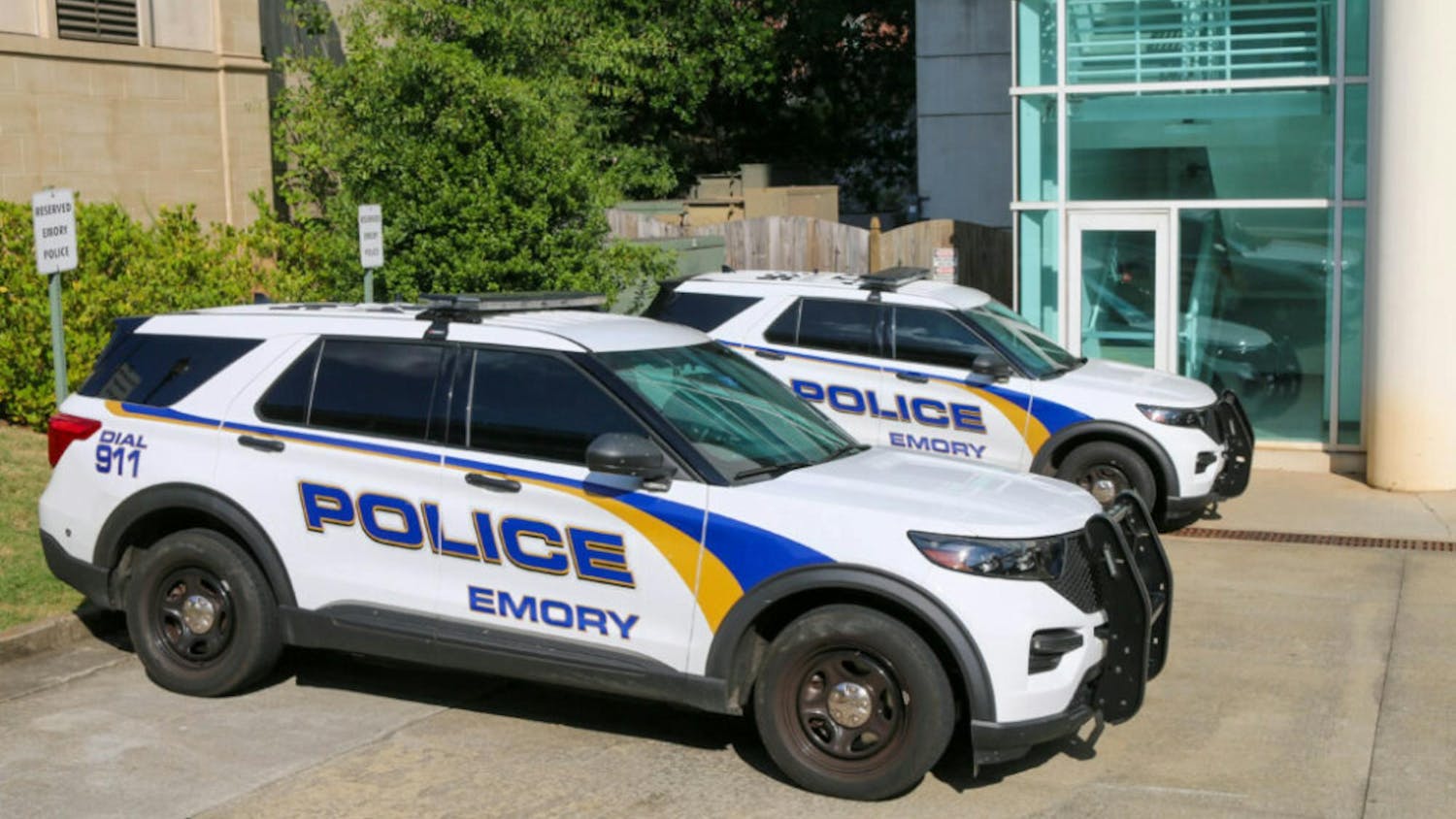Like many club sports at Emory University, Emory’s Gender Expansive and Women’s Ultimate (EGEWU) experienced setbacks due to the pandemic. EGEWU was unable to complete their spring 2020 season, or play at all during the 2020-2021 school year. Still, EGEWU found a silver lining.
“We have left behind some of the more negative views of competition,” Grace Donahue (22C) said, explaining that the past year has seen a decidedly positive attitude amongst the team members and coaches.
The team was formerly known as Emory Women’s Ultimate (EWU), and Donahue, co-president and captain of the A-team, said that the team made a concerted effort in the past few years to shift their values concerning gender inclusivity.
“We try to foster a place where everyone can come and be themselves,” Donahue said. “We recently changed the name and mentality about gender.”

The gender-inclusive team considered many changes to their team name to welcome more people to the sport. Zoe Moskowitz (22C) described the progression of EWU to a gender-inclusive team as one of multiple iterations. The team included an “X” in their name, the universal “gender-neutral” letter, before finally settling on “EGEWU.”
A longtime multi-sport athlete, Moskowitz started ultimate frisbee at Emory and has played all four years. She said that the club sport is where she first found her sense of athletic community at Emory.
“Ultimate is the first sport where I didn’t feel any pressure,” Moskowitz said. “I never feel stressed going to practice even though we still run a lot.”
EGEWU consists of two teams: LUNA, the A-team, and TUNA, the B-team. During the fall of 2021, EGEWU practiced together as a roughly 50-person group to ensure that everyone had a foundational understanding of the rules and how ultimate frisbee is played. Toward the end of the season, the four coaches observed the players in action and then split them into two groups for the spring season.
Both Donahue and Moskowitz expressed a deep affection for the caring environment found within EGEWU.
“The biggest win to me is that in our first spirit circle, so many of our teammates were talking about how much joy they got from playing,” Donahue said.
At the end of each practice, players shout out each other popcorn style, and at tournaments, players take part in a buddy system, checking in on their buddy to make sure that everyone is feeling supported for the entirety of the weekend.
This off-field chemistry has manifested itself on the field. At a recent tournament, LUNA placed second out of a competitive six teams through their team effort.
“The chemistry and gel that we have on the field is really awesome to see,” Moskowitz said.
Beyond day-to-day actions and the team’s shift to a gender-inclusive space, EGEWU has also turned their focus to opening up the conversation about all forms of equity. EGEWU wants to meet a vision wherein “including equity has been all forms of equity,” Donahue said.
EGEWU’s coaches chose not to charge dues to make the sport more economically accessible for the wider Emory community. The club also hosted a session with Discover/Diversity’s (D/D) founder, CEO and senior equity consultant Shanye Crawford who focuses on equity consulting in the ultimate frisbee community. D/D offers several types of equity consulting, and Crawford met with EGEWU through a grant from the office of Belonging and Community Justice at Emory.
Donahue explained that there is a lot of work being done in the general ultimate community demographically.
“It has been a historically white space that we are trying to navigate and acknowledge,” Donahue said. D/D’s consulting was very helpful in opening up EGEWU’s understanding of the future they would like to help shape within the ultimate community, Donahue added.
Both Moskowitz’s and Donahue’s spoke to the level of accountability that is fostered within ultimate frisbee. At the college level, games are self-refereed, requiring that all of the players know the rules and advocate for the right call.
“The teams are generally encouraged to be friendly to each other,” Moskowitz said. “You’re held accountable to being honest and fair and having what we call ‘good spirit.’”
This self-advocacy, accountability and emphasis on the importance of interpersonal respect clearly manifests in the way that EGEWU operates on and off the field, providing a stellar example to the Emory community that playing fields can be made more equitable by taking intentional steps toward inclusivity.









